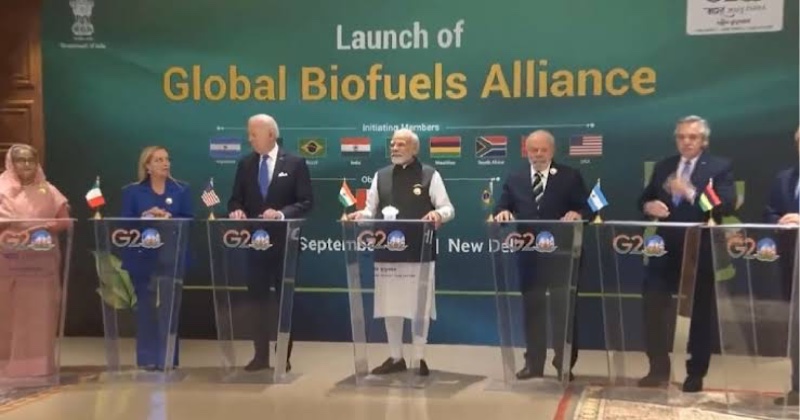
India’s Bureau of Indian Standards (BIS) has issued new standards for biofuels, aligning with Prime Minister Narendra Modi’s Global Biofuel Alliance (GBA) initiative. These standards aim to promote the blending of biofuels produced from biomass with fossil fuels to reduce emissions. India has a target to blend 20% ethanol biofuels into its transportation fuels, reducing the need for crude oil imports.
The nine new standards address various aspects of biofuels, making them useful for stakeholders such as manufacturers, traders, and other entities involved in the biofuel industry. These standards encompass blending components for motor gasoline, automotive fuels, aviation turbine fuel, and specification for Positive Ignition Engine Powered Vehicles. The BIS has also been working on standards for green diesel derived from 2G feedstock, which includes agro-residues like rice and wheat straw, cane trash, corn cobs and stover, cotton stalk, bagasse, empty fruit bunches, and more.
As India aims to reduce its dependence on fossil fuels and increase the use of renewable energy sources, these standards play a vital role in achieving clean energy goals, “Make in India,” turning waste into wealth, increasing farmers’ income, and working towards net-zero emissions by 2070. By adopting these standards, India can advance its efforts in sustainable energy and environmental preservation.

Post Your Comments